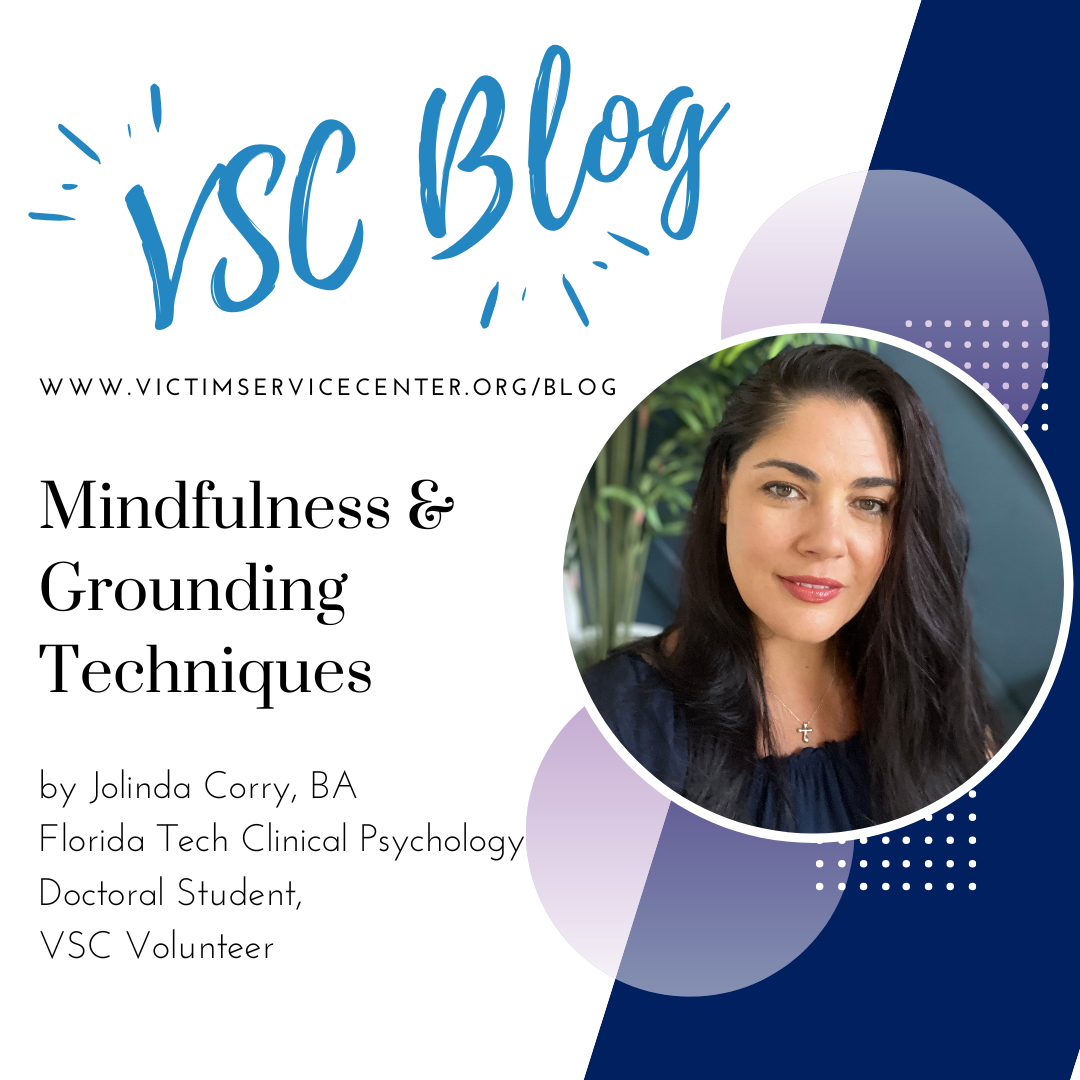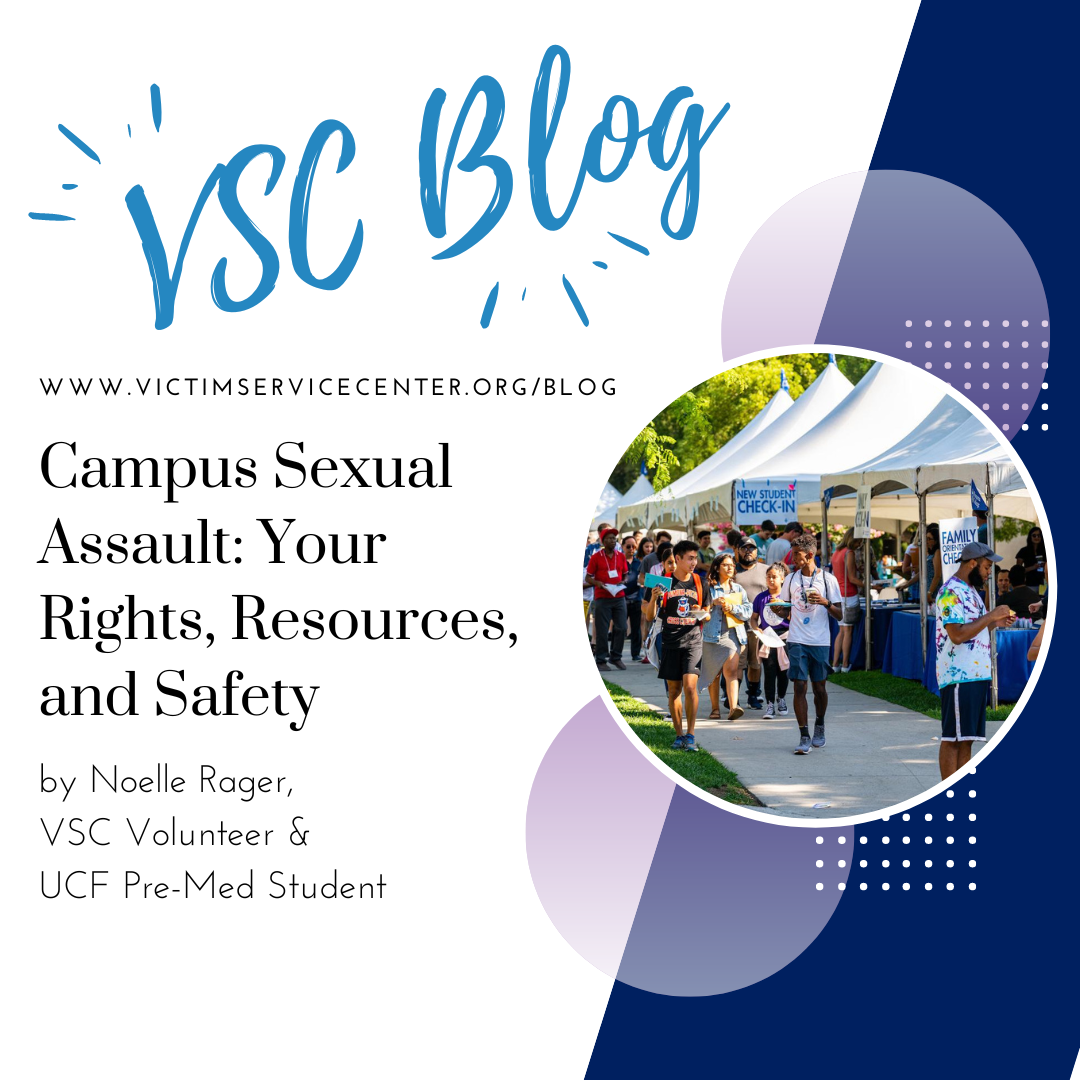By Gelissa Bultron, Rollins College Clinical Mental Health Counseling Graduate Student
Domestic Violence is an important matter that can impact every demographic and community throughout the United States. According to the National Coalition Against Domestic Violence, on average, nearly 20 people per minute are physically abused by an intimate partner. It is also a known fact that 1 in 4 women and 1 in 9 men experience severe intimate partner physical violence, intimate partner contact sexual violence, and/or intimate partner stalking.
Unfortunately, these experiences may leave a victim feeling powerless, fearful, and stuck. A victim may form negative beliefs about others and themselves while in the relationship, which in turn may lead to depression and anxiety.
This is why support, patience and a nonjudgmental listening ear is a significant factor for an individual or loved one who is experiencing an abusive relationship.
While in an abusive relationship feelings of exhaustion may occur due to the up and down cycle of experiencing both good and bad times with the partner. This can be a confusing time for the victim leaving them uncertain on whether they should stay or leave the abusive relationship. There are many factors that can be considered by the loved one who is thinking of leaving an abusive relationship, some factors can include: finances, children, manipulation, fear and rejection.
Whatever the reason may be, as a supporter it is best to have the victim’s interest and safety in mind at all times. Below is a list of 5 ways to effectively support a loved one that is experiencing intimate partner violence (IPV) relationship:
1. Listen more, Speak less
Knowing someone you care about is a victim to violence may be a hard pill to swallow, however, having a non-judgmental outlook on the situation and the knowledge that it is the individual’s decision to stay or leave the relationship, is important when navigating this difficult situation. A strategy that can be used is helping the individual feel as if they are in control of their life while they are speaking to you about their situation. This can be done by actively listening to the individual and allowing them to share what they feel comfortable disclosing about their situation. Encouraging but not forcing the victim to disclose information about their relationship, shows that you are present and open to listening. However, it is important to be aware of the pressure a victim may feel at any given moment.
Note: Offering the victim a word of strength can allow them to hear a strength that they already possess. It can also help the individual step out of any self-doubt they may be experiencing while seeing themselves in a more positive light.
2. Be Mindful of Your Reactions
When being present for someone in an abusive relationship, it is important to be aware of your feelings, thoughts or prior experiences that may impact the way you perceive or discuss the abuse. Feelings such as agitation, restlessness, irritability, and muscle tension can hinder your presence with your loved one. This may lead to an advice based discussion which can prevent the victim from feeling safe discussing any abuse in your presence. Always remember, that attempting to “rescue” a victim of abuse, may provide more control towards the victim than the empowering freedom they might need in that moment.
If you would like to speak to someone about managing your reactions or guiding a loved one through abuse, you can speak to one of our crisis counselors, using out 24/7 helpline; (407) 500-HEAL.
3. Do Not Judge Them or Use The phrase, “If I were you…”
Judging a victim can leave the individual feeling powerless and fearful, which many partners tend to cause in an abusive relationship. Helping the individual feel in control, worthy, strong, and capable of overcoming anything, can shape their outlook on their situation. It is key to remember that you are not your loved one, so being respectful of their decision making, may make a difference in the victim confiding in you again.
4. Be Patient
There are many reasons why victims stay in abusive relationships. On average, a person may leave a relationship 6-8 times before they are entirely done with the relationship. When the victim is ready to end the relationship, they will.
While being patient, educate yourself with resources that can assist the victim when they are ready to leave. That may include a local domestic violence agency that provides counseling or support groups, a mental health professional that can assist the victim in creating a safety plan or even local shelters, job placement organizations or food banks that can provide help and guidance. If the victim decides to go to the police, court, or lawyers, offer to go along with them for moral support but if the victim changes their mind – do not shame or intimidate them into going. If the victim decides to end the relationship, continue to be supportive through their process.
Continue maintaining your guiding light and highlighting your loved one’s strength.
5. Ask Permission to Give Advice and Remind Them They Can Say No
Inserting unwanted advice may make the victim feel intruded upon, intimidated and ultimately controlled. It is best to ask your loved one if they would like to hear your advice. Asking permission will allow the victim to have control in what they do and do not want to hear. This can assist the victim in feeling powerful. As a supporter, it is helpful to remind the victim that you respect their decision and still be present to support them through their journey.
If you have additional information or have questions, Victim Service Center is here to help.
If this is an emergency please contact 911.
If you need to speak with a crisis counselor immediately please use our 24/7 helpline at (407) 500-HEAL.





